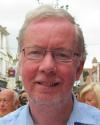The problem with science and complexity

By Brian Clegg
Science is wonderful. I’m a science writer, and you’d expect me to say that, but it really is. And when the other day I read an interview with actor Mark Rylance where he spouted a stream of anti-science balderdash, I had to sigh deeply. But we do need to recognise that science also has its limitations – every now and then (for example when Stephen Hawking proclaimed that philosophy was dead because science had covered all its bases), scientists do overreach themselves, and I think the most common reason is when they forget that real world systems tend to be a lot more complex than the models that are used to understand them.
I was reminded of this listening to Tim Harford’s excellent Cautionary Tales podcast about the difficulties of attempting to control the weather or the climate. While there is no doubt that we can influence both, the systems are sufficiently complex that we have to be extremely wary of unintended consequences. I was a bit surprised that caution has even been expressed about devices that simply remove carbon dioxide from the atmosphere (which is, after all, what plants do) – but suggested engineering solutions to climate change such as reflecting back some of the incoming solar energy, or attempting to increase algal growth in the seas are loaded with unknowns and rightly considered not worth the risk at this stage.
The fact is, the second key mantra for all scientists and engineers (the first being ‘correlation is not causality’) should surely be ‘but it’s more complicated than that’.
I’m reminded of that old joke (I’ve told it many times, so excuse the repetition) of a dietician, a geneticist and a physicist discussing how to produce the perfect racehorse. The dietician says ‘You’ve got to monitor and control its diet from birth.’ The geneticist says, ‘No, it’s a matter of studying its bloodline and the animal’s genes.’ ‘Well,’ says the physicist, ‘let’s assume the racehorse is a sphere.’
I do think scientists need to be a little more honest both with themselves and the public in this regard. There is something of a tendency to state as if fact, something that is either a considerable simplification of the real system, or is the current most popular theory, but is not yet supported by experiment or observation. A classic example would be the number of books and articles I read that consider dark matter particles a reality, rather than one of the theories that potentially explains the observed phenomena, even though, as yet, there is no direct evidence for the existence of the particles.
I was reminded of the risk of scientific hubris that comes from extending your field of knowledge to something beyond it, both by Harford’s podcast and the recent book Is Maths Real by Eugenia Cheng. In the podcast, we meet Irving Langmuir, a Nobel Prize winner in his specialist area, but someone who, when it came to weather manipulation, ignored both the mantras above. Cheng gives us an excellent view of the nature of pure mathematics, but then makes wild assumptions in assuming her simple mathematical logic can be applied to something as complex (and chaotic) as human relations or history.
This doesn’t mean that science is doomed, and we should all adopt as bonkers a view of the world as Mark Rylance. Science has enabled a huge amount of progress in both knowledge and quality of life. But whether we are thinking about the climate, the Earth’s biosphere or the latest simulation of a quasi-particle travelling backwards in time (or some other New Scientist-style headline), we could do to acknowledge a little more that we are dealing with complex systems that our limited models are not capable of describing in full detail and that we should proceed with caution.
Image by Tim Johnson from Unsplash
See all of Brian's online articles or subscribe to a weekly digest for free here
Now Appearing is the blog of science writer Brian Clegg (www.brianclegg.net), author of Inflight Science, Before the Big Bang and The God Effect.
Source: http://brianclegg.blogspot.com/2023/06/the-problem-with-science-and-complexity.html
Anyone can join.
Anyone can contribute.
Anyone can become informed about their world.
"United We Stand" Click Here To Create Your Personal Citizen Journalist Account Today, Be Sure To Invite Your Friends.
Please Help Support BeforeitsNews by trying our Natural Health Products below!
Order by Phone at 888-809-8385 or online at https://mitocopper.com M - F 9am to 5pm EST
Order by Phone at 866-388-7003 or online at https://www.herbanomic.com M - F 9am to 5pm EST
Order by Phone at 866-388-7003 or online at https://www.herbanomics.com M - F 9am to 5pm EST
Humic & Fulvic Trace Minerals Complex - Nature's most important supplement! Vivid Dreams again!
HNEX HydroNano EXtracellular Water - Improve immune system health and reduce inflammation.
Ultimate Clinical Potency Curcumin - Natural pain relief, reduce inflammation and so much more.
MitoCopper - Bioavailable Copper destroys pathogens and gives you more energy. (See Blood Video)
Oxy Powder - Natural Colon Cleanser! Cleans out toxic buildup with oxygen!
Nascent Iodine - Promotes detoxification, mental focus and thyroid health.
Smart Meter Cover - Reduces Smart Meter radiation by 96%! (See Video).





